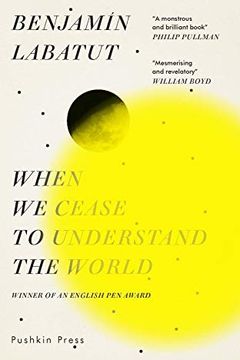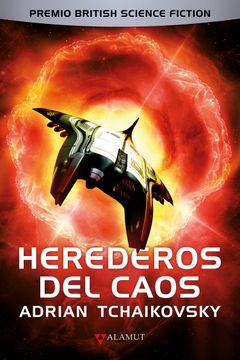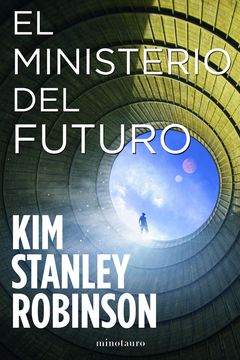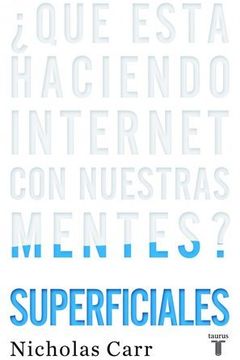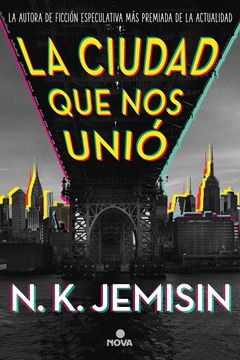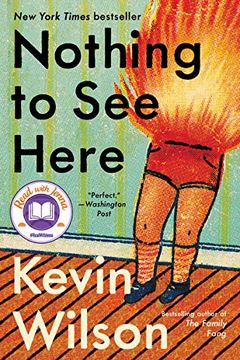Ezra Klein
Libros Recomendados
Ezra Klein is an American journalist, blogger, and political commentator who co-founded Vox, where he is currently editor-at-large. He was previously a blogger and columnist for The Washington Post and an associate editor of The American Prospect. He has served as a contributor to Bloomberg News and MSNBC.
27 libros en la lista
Ordenar por
Últimas recomendaciones primero
Diseño
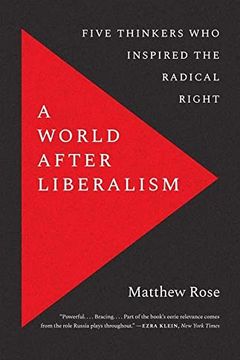
A World after Liberalism
Five Thinkers Who Inspired the Radical Right
Explore the radical right and their attempts to imagine new political societies after the decline of liberalism in this provocative book. Author Matthew Rose dives into the movement's religious aspirations and tensions with secular values, making it one of the most controversial intellectual movements of the twentieth century. With powerful writing and eerie relevance to current events, this book is a must-read for those curious about the future of politics.
Ezra Klein
2022-04-04T13:18:38.000ZRecomendado por
Timothy Keller
Ukraine in histories and stories. Essays by Ukrainian intellectuals
Essays by Ukrainian Intellectuals (Ukrainian Voices)
Discover a multi-faceted image of Ukraine's history and reality with this collection of essays written by Ukrainian intellectuals. Explore topics ranging from the Holodomor to Maidan, from cultural diversity to Russian aggression. Written by writers, historians, philosophers, political analysts, and opinion leaders, this book offers insights into conceptual ideas and life stories that will leave you with a deeper appreciation for Ukraine's past and present.
Ezra Klein
2022-04-04T13:18:38.000ZThis mind-bending work explores scientific discovery, ethics, and the blurred line between genius and madness. Follow the stories of Albert Einstein, Alexander Grothendieck, Erwin Schrödinger, and Werner Heisenberg as they navigate groundbreaking discoveries and the potential consequences of their work. Through a mix of fact and fiction, this book reveals the strange and exhilarating world of science.
Ezra Klein
2022-01-02T17:20:23.000ZLa asombrosa continuación de Herederos del tiempo, novela ganadora del premio Arthur C. Clarke en la que comenzó la lucha por la supervivencia de la humanidad en un mundo terraformado. Hace miles de años, el programa de terraformaciónalcanzó las estrellas. En un planeta llamado Nod,los científicos descubrieron vida alienígena, pero su misión era reemplazarla con la biología terrestre. Cuando el imperio humano cayó, las decisiones delprograma quedaron olvidadas en el tiempo. Mucho después, los últimos restos de la humanidad y sus aliadas arácnidas detectan señales de radio procedentes de las estrellas y envían una nave de exploración con la esperanza de encontrar a sus parientes perdidos de la vieja Tierra. Pero los terraformadores de antaño despertaron algo en Nod; algo terrorífico que más valdría haber dejado en paz.
Ezra Klein
2021-12-29T16:02:19.000Z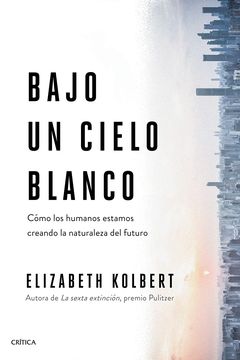
Bajo un cielo blanco
Cómo los humanos estamos creando la naturaleza del futuro (Drakontos)
The Pulitzer Prize–winning author of The Sixth Extinction returns to humanity’s transformative impact on the environment, now asking: After doing so much damage, can we change nature, this time to save it?
That man should have dominion “over all the earth, and over every creeping thing that creepeth upon the earth” is a prophecy that has hardened into fact. So pervasive are human impacts on the planet that it’s said we live in a new geological epoch: the Anthropocene.
In Under a White Sky, Elizabeth Kolbert takes a hard look at the new world we are creating. She meets scientists who are trying to preserve the world’s rarest fish, which lives in a single, tiny pool in the middle of the Mojave. She visits a lava field in Iceland, where engineers are turning carbon emissions to stone; an aquarium in Australia, where researchers are trying to develop “super coral” that can survive on a hotter globe; and a lab at Harvard, where physicists are contemplating shooting tiny diamonds into the stratosphere in order to reflect sunlight back to space and cool the earth.
One way to look at human civilization, says Kolbert, is as a ten-thousand-year exercise in defying nature. In The Sixth Extinction, she explored the ways in which our capacity for destruction has reshaped the natural world. Now she examines how the very sorts of interventions that have imperiled our planet are increasingly seen as the only hope for its salvation. By turns inspiring, terrifying, and darkly comic, Under a White Sky is an utterly original examination of the challenges we face.
Ezra Klein
2021-02-09T17:13:09.000ZEl Ministerio del Futuro una obra maestra de la imaginación. Narra a través de testimonios ficticios cómo nos afectará a todos el cambio climático. Su visión no es la de un mundo desolado y apocalíptico, sino la de un futuro que ya se nos echa encima… y cuyos desafíos tal vez consigamos superar por los pelos.
Es una novela actual e impactante, descorazonadora y esperanzadora a partes iguales, y es uno de los libros más poderosos y originales que jamás se hayan escrito sobre el cambio climático.
Creado en el año 2025, el objetivo del nuevo organismo era sencillo: Defender a las futuras generaciones de la humanidad y proteger a todos los seres vivos, del presente y del futuro. Enseguida empezó a ser conocido como el Ministerio del Futuro, y esta es su historia.
Ezra Klein
2020-11-30T16:24:54.000Z
El precio de la paz
Dinero, democracia y la vida de John Maynard Keynes (Contextos)
A page-turning biography of world-changing economist John Maynard Keynes and the big ideas, inspired by his friendships with the Bloomsbury Group, that outlived him.
In the spring of 1934, Virginia Woolf sketched an affectionate "biographical fantasy" of her great friend John Maynard Keynes. Writing two years before the publication of his magnum opus, The General Theory, Woolf nevertheless found herself unable to condense her friend's already-extraordinary life into anything less than twenty-five themes, which she jotted down at the opening of her portrait: "Politics. Art. Dancing. Letters. Economics. Youth. The Future. Glands. Genealogies. Atlantis. Mortality. Religion. Cambridge. Eton. The Drama. Society. Truth. Pigs. Sussex. The History of England. America. Optimism. Stammer. Old Books. Hume."
Keynes was not only an economist, as he is remembered today, but the preeminent anti-authoritarian thinker of the twentieth century, a man who devoted his life to the belief that art and ideas could conquer war and deprivation. A moral philosopher, political theorist, and statesman, Keynes immersed himself in a creative milieu filled with ballerinas and literary icons as he developed his own innovative and at times radical thought, reinventing Enlightenment liberalism for the harrowing crises of his day--which included two world wars and an economic collapse that challenged the legitimacy of capitalism and democratic government itself. Keynes's extraordinary life took him from intimate turn-of-the-century parties in London's riotous Bloomsbury art scene to the fevered negotiations in Paris that shaped the Treaty of Versailles, through stock market crashes on two continents, diplomatic breakthroughs in the mountains of New Hampshire, and wartime ballet openings at Covent Garden.
In this riveting biography, veteran journalist Zachary D. Carter unearths the lost legacy of one of history's greatest minds. John Maynard Keynes's vibrant, deeply human vision of democracy, art, and the good life has been obscured by technical debates, but in The Price of Peace, Carter revives a forgotten set of ideas with the power to reinvent national government and reframe the principles of international diplomacy in our own time.
Ezra Klein
2020-08-13T17:30:48.000Z«¿Google nos vuelve estúpidos?» Nicholas Carr condensó así, en el título de un célebre artículo, uno de los debates más importantes de nuestro tiempo: mientras disfrutamos de las bondades de la Red, ¿estamos sacrificando nuestra capacidad para leer y pensar con profundidad? En este libro, Carr desarrolla sus argumentos para crear el más revelador análisis de las consecuencias intelectuales y culturales de Internet publicado hasta la fecha.
Nuestro cerebro, como demuestran las evidencias científicas e históricas, cambia en respuesta a nuestras experiencias, y la tecnología que usamos para encontrar, almacenar y compartir información puede, literalmente, alterar nuestros procesos neuronales. Además, cada tecnología de la información conlleva una ética intelectual. Así como el libro impreso servía para centrar nuestra atención, fomentando el pensamiento profundo y creativo, Internet fomenta el picoteo rápido y distraído de pequeños fragmentos de información de muchas fuentes. Su ética es una ética industrial, de la velocidad y la eficiencia.
La Red nos está reconfigurando a su propia imagen, volviéndonos más hábiles para manejar y ojear superficialmente la información pero menos capaces de concentración, contemplación y reflexión. Este libro cambiará para siempre nuestro modo de entender y aprovechar las nuevas tecnologías.
Ezra Klein
2020-07-01T21:19:29.000ZToda gran ciudad tiene un alma. algunas son tan antiguas como los mitos, y otras, tan nuevas y destructivas como los niños. Nueva York tiene seis...
Toda ciudad tiene también un lado oscuro. Un mal antiguo y furibundo agita los pasillos del poder, amenazando con destruir Nueva York y a sus seis avatares recién nacidos, a no ser que estos consigan unirse y logren ponerle fin de una vez por todas.
Ezra Klein
2020-06-25T15:43:07.000ZA woman finds purpose in caring for two children with remarkable and disturbing abilities in this moving and uproarious novel. When her estranged friend asks for her help, Lillian becomes the caretaker for her twin stepkids who spontaneously combust when agitated. Through a humid and demanding summer, Lillian learns to trust the children while protecting them from their buttoned-up politician husband. With its white-hot wit and big, tender heart, this is a most unusual story of parental love that will leave you wanting more.
Ezra Klein
2020-06-25T15:43:07.000ZLet the People Pick the President by Jesse Wegman
Breaking the Two-Party Doom Loop by Lee Drutman
La zorra y las uvas by Sean Carroll
Así se pierde la guerra del tiempo by Amal el-Mohtar
Cómo no hacer nada by Jenny Odell
Give People Money by Annie Lowrey
Down Girl by Kate Manne
Predicting the Presidency by George C. Edwards III
Creatividad, S. A., Cómo llevar la inspiración hasta el infinito y más allá by Ed Catmull
The Gamble by John Sides
Overreach by George C. Edwards III
Beyond Ideology by Frances E. Lee
The Polarized Presidency of George W. Bush by George C Edwards III
Why the Electoral College Is Bad for America by George C. Edwards III
On Deaf Ears by George C. Edwards III
Stealth Democracy by John R. Hibbing
What It Takes by Richard ben Cramer
